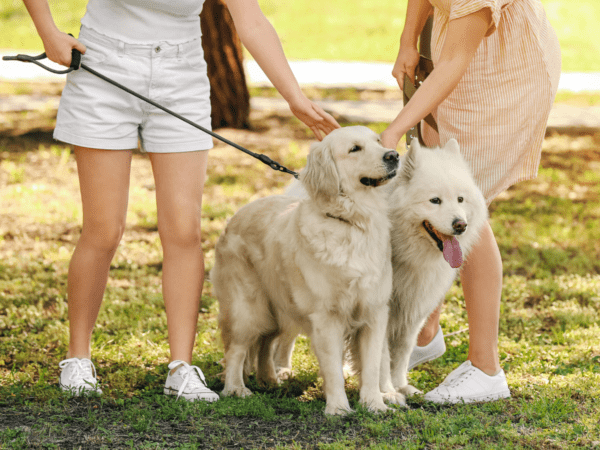Do Some Dog Breeds Hurt People More Than Others?

Understanding the behavior of different dog breeds is an essential aspect of responsible pet ownership. All dogs can bite and potentially cause injury, but what are the factors that influence dog behavior and the possible risks associated with certain breeds? Responsible pet ownership, socialization, and training are key factors in preventing the risk of a serious dog bite incident.
Factors Influencing Dog Behavior
The behavior of a dog is influenced by a combination of genetics and environmental factors. While genetics may predispose a dog to certain traits, it’s the environment and upbringing that often play a more substantial role. Socialization and training are essential elements in shaping a dog’s behavior.
Dog Breeds with Potential Risk Factors
Certain dog breeds are known for specific characteristics that may increase the risk of aggressive behavior. It’s essential to note that not all dogs of these breeds will exhibit these traits, but responsible ownership is especially important for them. Here are some breeds with potential risk factors:
- Pit Bull Terriers: While many pit bulls are friendly and affectionate, they are known for their strong jaws and determination. Proper socialization and training are vital for this breed.
- Rottweilers: Rottweilers are protective and can be territorial. Early training and socialization are critical to ensuring they are well-behaved.
- German Shepherds: Known for their intelligence and loyalty, German Shepherds can also exhibit protective behavior. Proper training is essential.
The size, strength, and energy level of particular breeds is also a factor when assessing the risk of injury. For example:
- Mastiffs: Mastiffs are large and powerful dogs, and their sheer size can make them challenging to handle without proper training and supervision.
- Huskies: Huskies have a high energy level and a strong prey drive. They require adequate exercise and socialization to prevent undesirable behaviors.
- Alaskan Malamutes: These dogs are strong and independent, making early training and supervision crucial.
Importantly, the natural territorial and guarding behaviors of a dog should be taken into consideration, such as:
- Doberman Pinschers: Dobermans can be loyal and protective, which may lead to territorial behaviors if not properly trained and socialized.
- Bullmastiffs: Bullmastiffs are natural protectors and may exhibit guarding tendencies. Training and socialization can help manage their behavior.
- Chow Chows: Chow Chows can be aloof and territorial. They typically only bond with one person. Therefore, early socialization is key to ensuring they are well-adjusted.
Responsible Dog Ownership
The key to preventing dog-related incidents is responsible ownership. Training and socialization play a significant role in ensuring that a dog behaves appropriately. Moreover, supervision and proper containment are crucial to avoiding potential issues. When a dog is around people in any situation or setting, the owner must remain vigilant at all times, even if the dog is believed to be harmless.
Common Factors in Dog-Related Injuries
Dog-related injuries can occur due to a variety of factors, including:
- Lack of supervision: Proper supervision is crucial in preventing dog-related injuries. Unpredictable behavior can lead to unfortunate consequences during interactions with unfamiliar people or animals. Responsible owners should ensure their dogs are always under watchful eyes.
- Unfamiliar surroundings or people: Dogs may feel anxious or defensive in new places or with strangers, so introduce them gradually. Be cautious to avoid conflicts.
- Misinterpretation of a dog’s behavior: Misunderstanding a dog’s body language can lead to injuries. It’s essential to educate oneself about dog behavior and signs of stress, fear, or aggression to prevent such misinterpretations.
Prevention Tips
Understanding dog behavior is essential to ensuring safe and positive interactions with our canine companions. Dogs communicate primarily through body language, and recognizing their cues can help prevent misunderstandings and potential conflicts. Here are some key points to keep in mind:
- Eye contact: Direct eye contact from a dog may be perceived as a challenge or a threat. It’s generally best to avoid prolonged staring and instead use soft eye contact when interacting with a dog.
- Growling: Growling is a form of communication, and it’s the dog’s way of expressing discomfort or a desire for space. It’s a warning signal and should be taken seriously.
- Barking: Dogs bark for various reasons, including to alert, communicate, or express anxiety. Understanding the context of the barking is essential in responding appropriately.
- Approach and touch: When approaching a dog, it’s advisable to do so calmly and with permission from the owner. Dogs may perceive sudden or invasive approaches as threatening.
Legal Considerations for Dog-Related Injuries
In cases where dog-related injuries occur, it’s essential to understand the legal aspects of pursuing a claim for compensation. Dog owners may be liable for injuries caused by their pets, and establishing negligence in dog bite cases is vital.
If you or a loved one has suffered a dog-related injury, it’s important to consult with an experienced personal injury lawyer. Your Glendale dog bite attorney will be well-versed in handling the delicate aspects of these types of cases and know how to calculate the full extent of your damages, such as medical expenses and time missed from work.
Have You Sustained a Serious Dog Bite Injury?
If you need legal assistance with a dog-related injury incident, Aratta Law Firm is here to help. Our Glendale team is dedicated to helping California injury victims who need and deserve compensation after an accident.
Let us help you on the road to recovery. Contact us at (818) 550-1111 to learn more with a complimentary consultation to discuss your case.